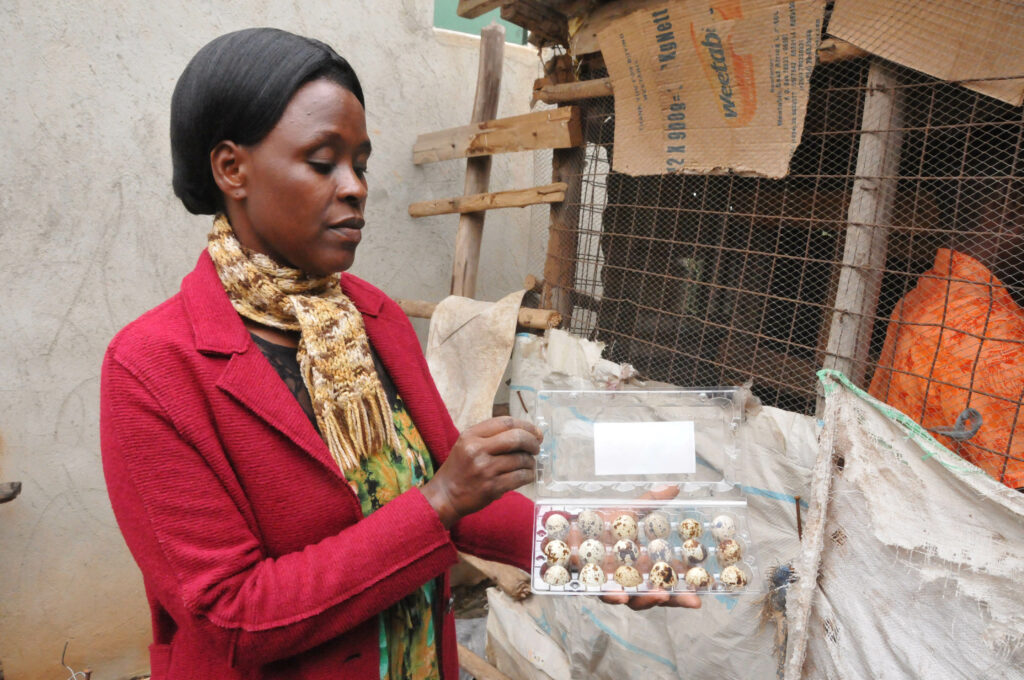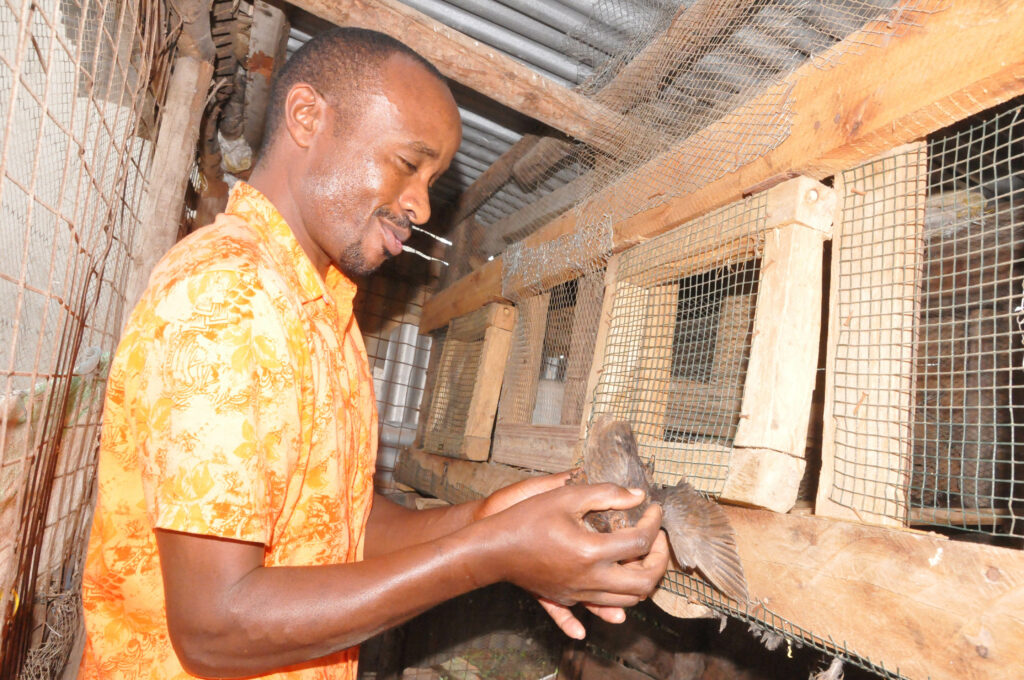By Abdulkarim Ssengendo
Naboth Katumba is a renowned vegetable farmer in Rubeho village-Masha sub county in Isingiro district. He started the business, after realizing it is a good source of income that would help him kick poverty out of his home.
Katumba established a vertical garden sitting on 100 by 100 fit pieces of land at his home where he grows Sukuma wiki, green paper, spinach, malakwang and on the same piece of land he rears pigs, rabbits and quail birds.
Speaking to New Vision, Katumba said vertical farming is a way to go especially for those with small land as one can utilize small spaces around their home to make money and eradicate poverty. “Vertical farming is the best practice whereby when the plant is growing its roots go deeper and it will get enough water which will help it to have a good production, “He stated. Vertical farming is a method of agriculture that allows farmers to stack plants in trays, sacks, tins allowing for a huge amount of production. Katumba started with sack farming but later discovered DPC paper which he binds using nuts and laid them down and built a garden.
Asked about the capital he started with, Katumba said knowledge and passion is the only great capital for one to start a successful business. “When you have passion for what you do, whenever you meet challenges, you will push on,” He stated. Katumba’s journey into vegetable farming started when his wife developed a health problem with low blood levels in 2012 when she was pregnant. Doctors recommended that she must eat enough greens for her to regain blood levels which had completely gone low. He started buying green but this became expensive since he had no big source of income. It was from this background that he decided to start growing vegetables but started small with sack farming and later decided to venture into vertical farming an idea he picked from his friend in Kakiika-Mbarara city.

“It’s not labour intensive, crops planted using vertical farming on 100 by 100 fit of land you can plant them on an acre of land. They are easily manageable because there are not a lot of weeds, and can easily be irrigated. You can have a small place and have bigger production, “He added. Katumba said he doesn’t regret why he left the job he was doing to join farming. He worked with the government and is among the pioneers of National ID, working with Immigration. He chose to quit the job and concentrate on his project after realizing it was not going to be easy for his wife to manage it. In terms of earning, he said farming is better because you earn on a daily or weekly basis and are earning more money than he was earning when he was still being employed.
Why left the job to vegetable growing
Katumba is a born-again Christian. He decided to serve God and realized it was not going to be easy to remain employed and do God’s work. He chose farming which he can do and get enough time to serve God. When he started earning on it on a small scale, he realized it had a big market and chose to go vertical farming and also put in piggery and rabbits. He can harvest two sacks of greens on a weekly basis selling each sack at shs 200,000. He left the job in 2022.
Future plans
He plans to increase his production from 4-5 sacks at least 4-5 weekly. He also plans to expand land and have many sacks. He also plans to expand the animal farm and also put a shade net which will help him from the problem of dry season where they get little water for production. Katumba has built water tanks of 4000 liters for irrigating his crops and plans to build many. He also plans to establish a greenhouse which will help him earn more during the dry season.
He also plans to expand his quail birds farm which currently has 20 birds which are giving him 4-5 trays of eggs on a weekly basis with each tray sold at shs15000

Community benefit
Katumba has put up a grocery where communities who like greens buy from him at a cheaper price. He also trains them how to do vertical farming on their small pieces of land.
Has also started installing vertical farming gardens in people’s homes those who are interested
Challenges
Shortage of water is a big challenge when it is a dry season. There is also a challenge of pesticides, every week he must spray to have the vegetables grow very well. He doesn’t have a market challenge because he doesn’t have enough to supply the available market. He has a challenge of laborers who are scarce.
Advice to the community
Thanked President Museveni for giving farmers advice, especially the 4-acre plans. He wants to grow into a person where people can come and learn from him. He advises Ugandans especially the youth to engage in agriculture. “Our parents have not earned a lot from farming because they were doing subsistence farming,” he said. Those still in employment he advises them to also start a farming project. “Agriculture is not a dirty job, the more you are focused and get passion for it the more you will reap more from it,” he added.





